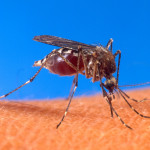 You have probably heard about the Zika virus on the news. Some people may become upset when hearing about a serious health concern. Scientists are working hard to understand this health problem however there are still many questions. Although there is no vaccine or treatment for Zika at this time, there are things you can do to lower your risk of getting the virus.
You have probably heard about the Zika virus on the news. Some people may become upset when hearing about a serious health concern. Scientists are working hard to understand this health problem however there are still many questions. Although there is no vaccine or treatment for Zika at this time, there are things you can do to lower your risk of getting the virus.
What is Zika?
The name “Zika” is the name of the forest in Uganda where the mosquito carrying the virus was first found many years ago. The Zika virus infection is usually mild and people rarely die of it. Only about 1 in 5 people who are infected with the Zika virus will actually get sick; however, infants born to mothers who are infected are at risk of having a serious birth defect called “microcephaly” or small head.
How does a person get infected with the Zika virus?
Zika virus disease is usually caused by the bite of certain infected mosquitos called “Aedes aegypti and Aedes albopictus.” However, it can also be transmitted (spread) through vaginal, anal and oral sex and when sharing sex toys with an infected partner—even if your partner doesn’t have any symptoms. It is also possible for a person to become infected with the Zika virus through a blood transfusion. According to the Center for Disease Control (CDC) no one in the United States has been infected this way; however, other cases have been reported in countries such as Brazil.
What are the symptoms of Zika?
Common symptoms of Zika virus disease may include: fever, pain in the joints, muscle pain, rash and redness of the eyes. These symptoms usually last for a few days to one week. Because the illness is usually mild, most people may not know they have been infected.
How is the Zika virus diagnosed?
It is VERY important to tell your health care provider if you and/or your partner have been traveling. If your health care provider is concerned that you are at risk for the Zika virus, he/she will likely test your blood or urine to check for Zika virus and other possible infections transmitted through mosquitoes.
What areas are affected by the Zika virus?
There are certain areas in South and Central America and the Caribbean, including the Commonwealth of Puerto Rico and the US Virgin Islands where there have been many new cases of the Zika virus transmitted by infected Aedes mosquitos. The Center for Disease Control (CDC) reports that places where the Zika virus is found will likely change, as it spreads to new areas. You can see an up-to-date map of affected areas on the CDC website: http://www.cdc.gov/zika/geo/index.html
Pregnant women should talk to their health care provider before planning a trip to an area affected by the Zika virus. The Center for Disease Control (CDC) recommends that:
- Women who are sexually active and not using a reliable method of birth control as well as women who are trying to become pregnant, should talk to their health care provider before traveling to areas known to be infected by the Zika virus.
- Anyone traveling to areas affected by the Zika virus should use methods to avoid mosquito bites.
What can I do to avoid getting bitten by mosquitos that could be infected with the Zika virus?
Certain (infected) mosquitos such as the Aedes species can cause serious health problems. The best way to avoid getting sick is to not get bitten by an infected mosquito. Other ways to lower your risk of mosquito borne illness in affected areas include:
For more information, visit: www.cdc.gov/zika
Source: Read Full Article
